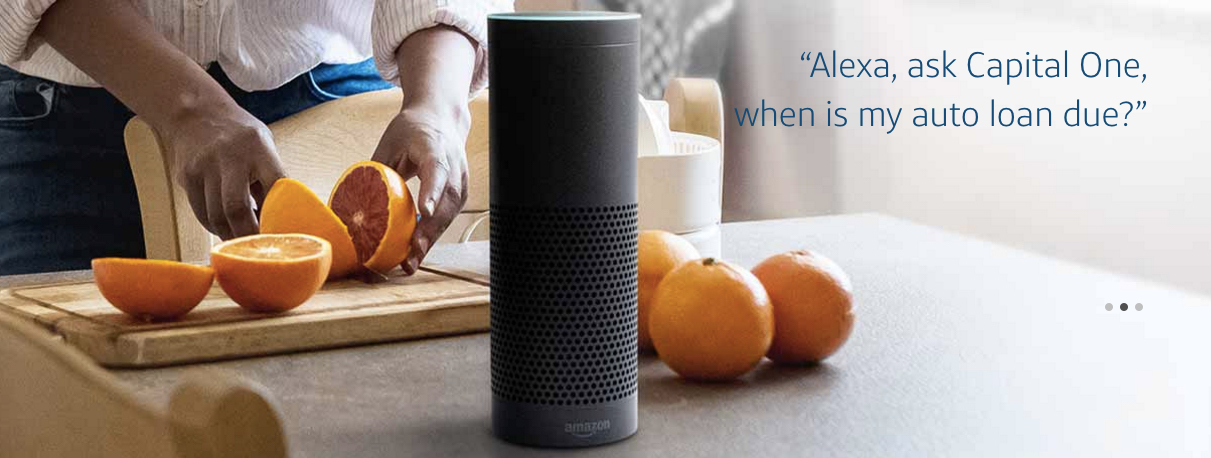
A look at the trending topics of the past two weeks, co-authored by Finovate’s research analysts David Penn and Julie (Schicktanz) Muhn.
Big handshakes
Cardtronics acquires DirectCash Payments
In a $460 million deal, Texas-based ATM operator Cardtronics has acquired Canada-based DirectCash Payments. The deal is expected to help Cardtronics expand into Canada and the U.K., since DirectCash Payments has 25,000 ATMs around the globe, primarily in Australia, Canada, and the U.K. Once the deal closes in Q1 of 2017, it will boost Cardtronics’ network to 225,000 ATMs across North America, Europe, and Asia Pacific.
Jack Henry & Associates (F10) teams up with Visa (F10)
In a new partnership, Jack Henry & Associates has integrated with Visa to allow customers to send P2P payments directly to a recipient’s Visa debit card. This eliminates the need for a recipient to provide their account and routing number to the sender. With increased competition in the P2P payments industry (PayPal/Venmo (FDNY 16), Square Cash, Zello), banks are feeling pressure to compete by offering faster delivery of funds. The partnership enables banks to offer funds-transfers a day sooner, or even same-day. Jack Henry began offering P2P payment capability in 2005 and expects the new method to boost usage.
Sberbank (F16) and MasterCard (F11) partner to launch ApplePay in Russia
Starting this week, Mastercard cardholders in Russia can now pay using ApplePay, thanks to a new partnership between Russian bank Sberbank and Mastercard. In a statement, the bank’s Deputy Chairman of the Executive Board, Alexander Torbakhov, said, “Apple Pay is driving the popularization of contactless payments in Russia and globally. Many of Sberbank clients actively use new technologies, and an increasing number of them will prefer cash-free and contactless payment using their smartphones.”
This is the Russian bank’s second big move this week. On Monday the company inked a partnership with Hyperledger to begin working on the Hyperledger Project.
PayPal (F11) and Vodafone partner for in-store NFC mobile payments
Acting on a partnership it first initiated in February, PayPal partnered with Vodafone to enable U.K. users to make NFC payments from their PayPal account using their Android phones. The agreement enables consumers to make transactions of up to £30 ($36.60) at 400,000 retail locations. For more expensive purchases, Vodafone Pay users can use their Vodafone wallet (launched in 2013), which requires a PIN.
The NFC payment capability with Vodafone was piloted in Spain. PayPal also has agreements in place with other global telcos, including America Movil, Telcel, and Claro.
Regulation
Happy birthday, U.S. EMV.
It’s been one year since EMV regulation in the United States was placed into effect. If you live in America, you’ve likely noticed that adoption is low. In fact, according to a recent report from Mastercard, 88% of consumers have been issued chip cards, but only 33% of merchant locations accept them.
Mobile POS company CardFlight (F13) released data on EMV usage in the U.S. over the course of the year and found:
- 78% of cards now contain EMV chips, up from 46% in October 2015
- American Express leads the way in EMV card issuance, with 96% of their cards now EMV-enabled
- Mastercard is the runner-up: 71% of cards issued contain an EMV chip
Check out CardFlight’s full EMV report here.
Though usage remains low, Mastercard reported this week that it has seen an overall decrease in fraud since the EMV change. The company reports that between April 2015 and April 2016, retailers who have transitioned to EMV experienced a 54% decrease in counterfeit fraud.
Ready, set, ACH
As of September 30, a new rule from NACHA requires all banks to process incoming same-day ACH credits. Most ACH payments are currently settled on the next business day: the new rule-change offers originators the option to send an ACH transaction to any recipient account for same-day processing. NACHA has imposed a same-day fee on every same-day ACH transaction to help financial institutions receiving the funds to recover the cost to enable same-day ACH. Phase two of NACHA’s Same Day ACH initiative will take effect 15 Sept 2017.

Technologies: AI, Chatbots & Natural Language Processing
There continues to be an industry obsession with chatbots. We had a half-dozen variants on the theme at Finovate last month. One of our newer alums, Personetics (F16), is even holding a Chatbot Bootcamp next month in San Francisco. And our post on it in March is our fourth most-read of all time. But really, the bigger conversation is around natural language processing (NLP) and how it can be used to retrieve information and perform tasks. A new report from Juniper Research estimated that NLP would drive $2.1 TRILLION in annual purchases via mobile 5 years from now (2021).
The tech world is in a tizzy over Amazon’s Alexa capabilities. We had two demos of her at FinovateFall from BankJoy (F16 demo) and FIS (F09) (F16 demo). Capital One is the only bank with a live Alexa integration (called “Skill”), but Lloyds Bank put together a proof of concept this spring. There are currently 2,904 skills listed in the unofficial Alexa database, but very little in the financial realm. Expect to see much, much more activity as financial institutions and fintech companies develop applications using Amazon’s Alexa and the new Google Assistant.
Sibos 2016 Celebrates the Blockchain
The annual Sibos 2016 conference in Geneva took place at the end of September – between the last Fintech Trending meeting and this one. Organized by SWIFT, Sibos is considered to be the world’s premier financial services event covering areas such as payments, securities, cash management, and trade.
So what was big at Sibos 2016 this year? The blockchain. 2016 was the first year that Sibos dedicated a track “exclusively to distributed ledger” technology. And the event’s startup “Industry challenge” was all about how to use the blockchain in the securities industry. The three startups that won the challenge will develop PoCs using technologies like smart contracts (SmartContract), distributed ledgers (Rise Financial Technologies), and open source blockchain platforms (Coin Sciences).
Some have picked up on the irony in SWIFT’s embrace of the blockchain; since its $6 billion payments messaging service is one of the technologies “widely perceived to be at risk for disintermediation” by blockchain technology. And indeed companies like Finovate alum Ripple (F13) have made great strides in helping FIs like Bank of America, Santander and Royal Bank of Canada use distributed ledger technology to provide a global blockchain payments network with “near-instant” settlement. Interestingly, Ripple recently hired former SWIFT board member
Marcus Treacher as its new global head of strategic accounts. Treacher told CoinDesk in September that SWIFT was the “de facto way everyone moves money through countries,” cross-border payments is something he specifically believes Ripple “can do better.”
- Global Banks Partner to Form Blockchain Payments Network – CoinDesk
- Sibos 2016: Innotribe Industry Challenge – results – Banking Technology
Speaking of blockchain, a number of companies with blockchain and distributed ledger technologies will be presenting at our developers conference, FinDEVr Silicon Valley, next week. These companies include PwC, which will present its blockchain-as-a-service technology to improve trade finance, and IBM with its hyperledger implementation in the cloud that helps manage and test blockchain dev projects. Also on hand will be distributed database specialists Aerospike (FD16) and Cognitect (FD16).
InsurTech Rising
From FT Partners recent report on the boom in insurance technology innovation to the InsurTech Rising event Informa will launch on Friday, this is one area of financial technology that is getting an increasing amount of attention.
Why? As FT Partners pointed out in their 247-page report, the insurance industry is one of the areas of finance that so far has been least affected by the technological disruption that has been almost commonplace elsewhere. The insurance industry is a multi-trillion dollar business; property and casualty insurers alone generated more than $64 billion in net income in 2014. And it sits at the nexus between the drive to better engage customers (is there anything enjoyable about insurance from a consumer perspective) and to accommodate complex and shifting regulatory landscapes (something the rest of finance is becoming increasingly familiar with).
What are the focuses of insurtech? Most technology innovation in the area is geared around trends in distribution and administration; data and analytics, and marketing and customer engagement. This includes everything from the kinds of products offered to consumers, such as micro-insurance, to using mobile channels and interactive technologies to make insurance products easier to understand, choose from, and purchase.
How are industry players responding and what to look out for? From partnering with innovative startups to acquisitions, incumbent insurance firms are increasingly aware of the challenge. FT Partners reports that more than 40% of traditional insurers surveyed by Ptolemus Consulting said they were planning to “acquire, or have already acquired, innovative startups to help them expand their digital capabilities” and more than half say they have already invested in social media, data mining, and predictive modeling. Nearly 70% have embraced mobile technology.
- Wave Mechanics: FT Partners Report Highlights Trends Driving Rise of Insurtech – Finovate
- Prepare for the InsurTech Wave: Overview of Key Insurance Technology Trends – FT Partners
- Informa’s FinTech Futures Hosts InsurTech Rising (pending) – Finovate
——
Note: Finovate alums have the year of their first appearance listed after their name. For example, FIS first appeared in at Finovate in 2009, so there is a (F09) after their name, with a link to that first demo.
The post Fintech Trending: P2P, EMV, NFC, NLP…. OMG appeared first on Finovate.